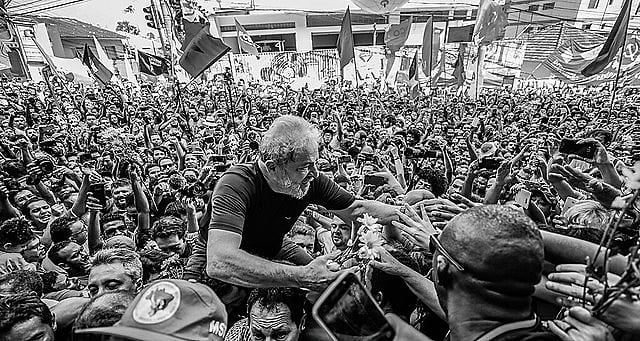*Updated at 3:30 p.m. Brasília time
A court authorized on Wednesday the transfer of Brazil’s former president Luiz Inácio Lula da Silva from Curitiba, where he has been held for more than a year, to the state of São Paulo.
Carolina Moura Lebbos, the deputy judge overseeing the ex-president’s case, ruled in favor of petitions filed by the Regional Bureau of the Federal Police in Paraná, where Lula is jailed.
Hours later, another judge, Paulo Eduardo de Almeida Sorci, issued a 14-page order in response to judge Lebbos’ decision, authorizing Lula’s transfer to a prison in the city of Tremembé, São Paulo, newspaper O Estado de S. Paulo reported.
The Tremembé prison is notorious for housing high-profile inmates.
Reasons
The Federal Police’s petition argued that there were security and public order reasons involved in keeping Lula in their headquarters, claiming that the facilities were “completely inappropriate” to hold him.
In her decision to authorize Lula’s transfer, judge Lebbos claimed that there was no reason in terms of safety, security, and public order to justify having the ex-president serving his sentence in a location that is far from his family and social circles.
While in the past there was a case when a former president was granted the right to a special cell — when Michel Temer was held in special prison facilities at the riot police department in São Paulo — judge Lebbos argued today that the country’s legislation on enforcement of judgment does not establish that Lula should necessarily be transferred to special facilities for former heads of state, but only that some precautions must be taken regarding the safety and security of the ex-president.
Lula has been jailed since April 7, 2018 at the headquarters of the Federal Police in the southern city of Curitiba. He stays most of the time in a 15 square-meter cell (roughly 160 square feet), with a closet, four chairs, a bathroom, a TV, and a single bed. He is allowed sunbathing time three times a week and family and friends can visit him on Thursdays. The rest of the time, he is completely isolated.
Defense
Lula’s defense lawyers said that, a month ago, they asked that the Federal Police’s petition to transfer the ex-president should be suspended while a habeas petition was pending in the Supreme Court, which is expected to review if the leftist leader could be released after new evidence emerged exposing that the former judge and now Justice minister Sérgio Moro was biased against Lula when he tried his case.
The defense’s petition also requested that, if the court ruled in favor of the Federal Police’s request to transfer Lula, he should be provided appropriate facilities for a former head of state.
His lawyers claim, however, that this Wednesday’s court decision goes against precedents established with other ex-presidents and implies that maybe Lula could be denied his right to be held in special facilities once he is transferred to São Paulo.
“Lula is a victim of fierce criminal coercion perpetrated by the justice system. The defense will take all necessary measures to restore ex-president Lula’s absolute freedom and to make sure he will enjoy the rights he is entitled to according to the law and the Constitution,” the defense’s statement reads.
Response
The Lula Institute released a statement after judge Lebbos’ decision reiterating the ex-president’s innocence and claiming that the ruling could be an attempt to “draw attention away from important matters.”
The organization underscores that the defense has not filed any petitions to transfer the ex-president from Curitiba, and that the court decision actually “disregards all arguments presented” by Lula’s lawyers.
“Lula is innocent and is serving an unfair sentence. We will not accept that he is treated like an ordinary prisoner. We want him to enjoy all the rights he is entitled to and deserves as a former president,” the statement reads, signed by the institute’s president Paulo Okamotto.
The Workers’ Party (PT) released a statement repudiating the decision, also pointing out that judge Lebbos disregarded the defense’s arguments when she ruled in favor of the Federal Police’s petition.
The party also recalls that Lula was convicted as part of a judicial farce and that today’s ruling is yet another illegal move that “arbitrarily denies him the prerogatives of an ex-president.”
The statement also demands that Lula’s rights are respected and that the Brazilian State guarantees his safety “until the courts acknowledge his innocence, the bias of Moro’s sentence, and the illegality of his imprisonment, wherever it is served.”




